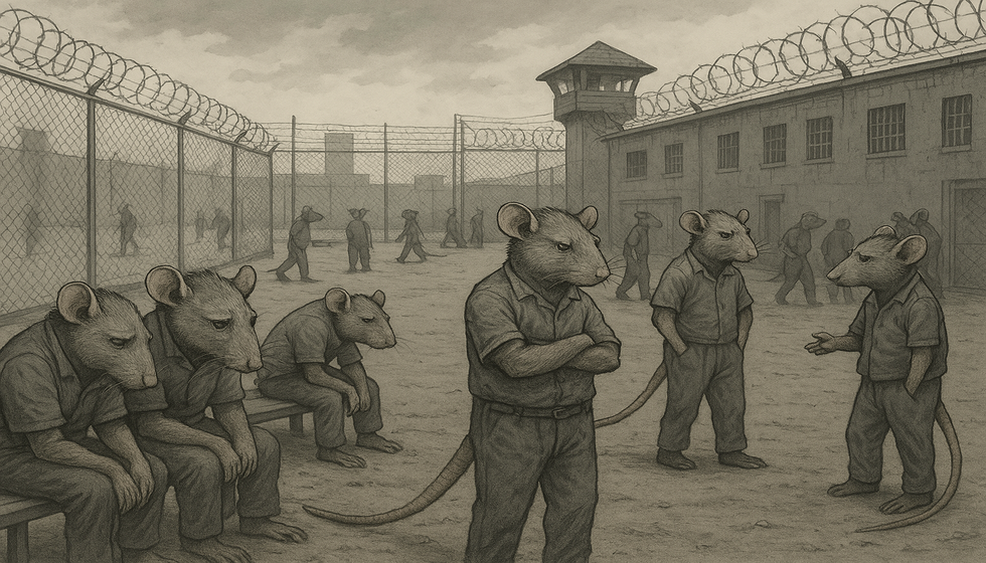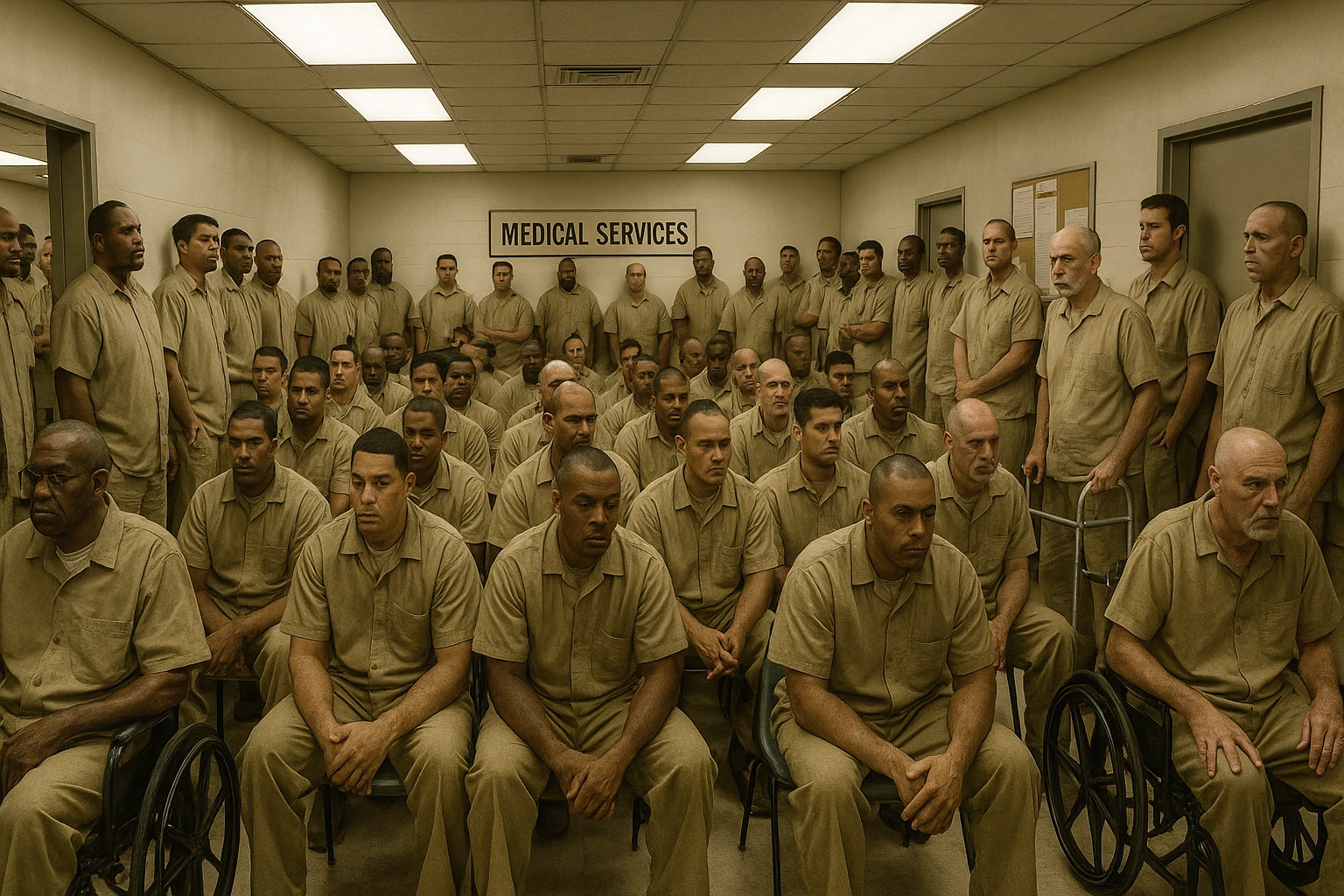
- Details
- Category: Prison Conditions & Safety
The U.S. Federal Bureau of Prisons (BOP) faces an escalating crisis driven by illicit drugs infiltrating its facilities, creating a self-sustaining cycle of despair and hopelessness that impacts inmates and correctional staff alike. Historically, drugs entering prisons were smuggled primarily by corrupt staff or visitors, but today, amid a deadly fentanyl epidemic, officers themselves are becoming unintended victims, sometimes fatally, through accidental exposure to potent substances, according to multiple BOP inmate and staff reports.

- Details
- Category: Prison Conditions & Safety
In the late 1970s, psychologist Bruce K. Alexander conducted a groundbreaking experiment that redefined how addiction is understood. Known as the Rat Park study, the experiment demonstrated that addiction is not simply about chemical dependency, but about environment, connection, and mental health. Rats isolated in cramped cages consistently consumed morphine-laced water, while those housed in an enriched, social, and stimulating space—"Rat Park"—mostly avoided it. The implication was clear: addiction flourishes in environments of despair and isolation.

- Details
- Category: Prison Conditions & Safety
In the early 2020s, the Federal Bureau of Prisons (BOP) began to address a disturbing trend: an increase in inmate suicides. Internal data indicated that suicides occurred more frequently among inmates housed alone. In response, the BOP implemented broad policies aimed at doubling up inmates in cells—framing the change as a suicide prevention strategy.

- Details
- Category: Prison Conditions & Safety
For decades, inmates in the Bureau of Prisons (BOP) had access to microwaves—standard heavy-duty units similar to those found in convenience stores. Then, following a violent incident in a Florida state prison where an inmate used a microwaved bowl of Vaseline as a weapon, the BOP reacted by phasing out microwaves nationwide. While this may seem like a common-sense safety measure, it highlights a recurring problem in BOP policy: reactionary decision-making with little foresight.

- Details
- Category: Healthcare Neglect in Prisons
The state of healthcare in the Federal Bureau of Prisons (BOP) is nothing short of a catastrophe. Inmates are subjected to poor nutrition, rampant drug addiction, and substandard medical care. Despite BOP policy stating that healthcare within the system should be equivalent to that of the general community, the reality is starkly different—many household pets in America receive better medical treatment than incarcerated individuals.